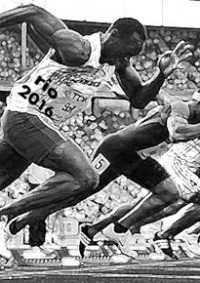
Mapping Poverty, Inequality and the New Middle Class in Brazil
About the research:
Click here to see the content of the research
The choice of Brazil and Rio de Janeiro, in particular, as host to the 2016 Olympic Games is justified by different reasons mentioned in the speeches of the Brazilian authorities in Kopenhagen, namely: the opportunity given to the country and the South-American continent in general to join olympic nations, the fact that we will host the 2014 World Cup works as an intermediate objective that will enable the achievement of a greater challenge, that of organizing the olympic games, and finally a marked improvement in Brazilian social and economic indicators in the last years, including the post-crisis period. More than the level of Brazilian development, its emerging power status would be the reason of our bid's success. In fact, a research by the Center for Social Policies at the Getulio Vargas Foundation launched 10 days before this research, based on 2008 PNAD data showed that, between 2003 and 2008, around 21 million people left their poverty status in Brazil and that more than 30 million people (equivalent to half of the French population) have risen to classes ABC in five years, of which 6,7 million last year alone. In the current decade, the high income inequality that characterizes the Brazilian case has suffered successive decreases. For instance, while the 10% poorest Brazilians experienced real per capita increases of 72%, the 10% richest grew 11% in the period.
Looking into the future, the olympic challenge would be as a relevant incentive in the margin for Brazil and Rio de Janeiro city to focus on the achievement of tangible and more permanent improvements - the olympic legacy - in the quality of life of its population. Similarly, the 2014 World Cup would place similar objectives to the attainment of social indicators for each one of its respective hosting cities. The present research analyses the social and economic performance of the 27 capital cities in Brazil, including the 2016 olympic city and the 12 cities of the 2014 World Cup. We analyze the performance of the social indicators among the four last Olympic games, More than a sports and social curiosity, there is an exact juxtaposition of the olympic cycles with the mayors' administrations. We present a recent portrait of the social indicators in these places for 2008, the last year of the mayors' administration. The objective is to give transparency to the evolution of these indicators, holding municipal authorities accountable for the previous social performance. The similarity of the major sports competition in the world that the largest Brazilian cities will host in the next decade, the competition for indicators among these capitals may encourage the State and society to fight for better indicators.
More concretely, among the 27 Brazilian capitals where social indicators have grown more, was it in Rio de Janeiro recently elected the host to the 2016 Olympic Games or Sao Paulo? What does explain such changes in each place? and the geography of poverty, has it changed? And why? who is the champion in the level and in improvements in social indicators in Brazil? Besides, we will track the compared evolution of data in Brazil with other countries. Particularly, processing microdata from more than 132 countries, it will identify the specificities of the Brazilian attitude in relation to its present and its future, and that towards the country as a whole.




